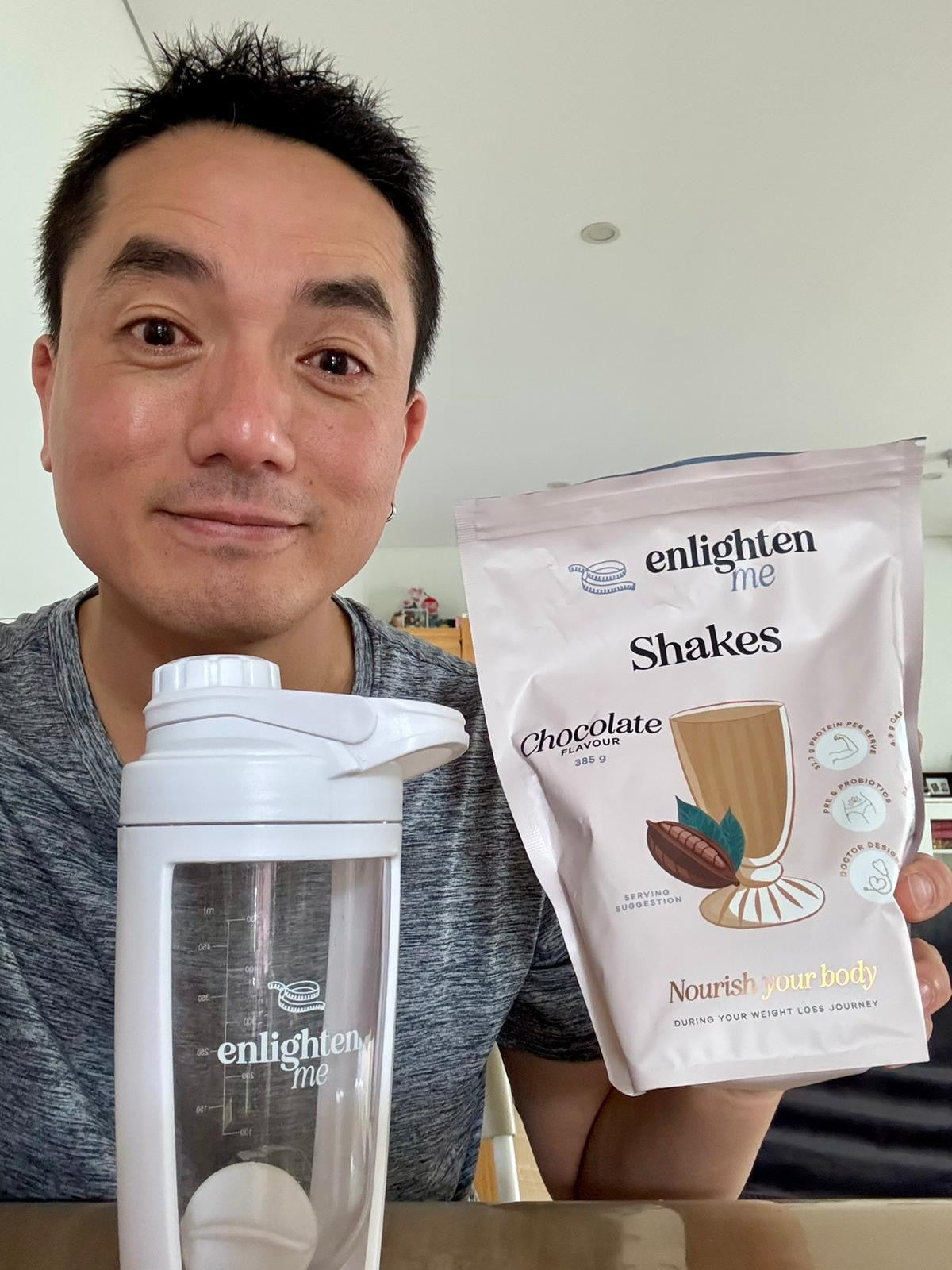
Midlife Weight Gain: It’s Not About Willpower
Share
Why Midlife Weight Gain Isn’t a Willpower Problem
When Padraig 'Pod' O’Sullivan invited Dr Angela Kwong onto the Don’t Let The Old Man In podcast for the episode “Weight loss drugs: miracle or mistake?”, the discussion opened a long-overdue conversation.
For decades, the dominant story around weight has centred on self-discipline - the belief that success is earned through control, and failure is personal. When weight creeps up in midlife, the unspoken prescription is seemingly always the same: eat less, move more, try harder.
That narrative has been deeply persuasive - and profoundly unfair. The midlife body is not failing; it is adapting. What once worked seamlessly now responds differently because the biological landscape has changed. Recognising that shift isn’t about excuses. It’s about accuracy.
When lifestyle "stops working"
In her GP clinic, Dr Angela Kwong often hears the same line:
“I’m eating clean, exercising more - but nothing’s shifting.”
The instinct is to assume a mistake in effort. “But the body,” Dr Kwong explains, “is often doing exactly what it’s designed to do - protect itself.”
After years of fluctuating diets, chronic stress and fragmented recovery, the metabolism can become more defensive, with the brain learning to conserve energy whenever it detects a pattern of scarcity. Calories are rationed not out of stubbornness, but survival.
This is not laziness. It is evolutionary intelligence: the body weight set point.
The quiet rule changes of midlife
By the 40s and 50s, subtle physiological shifts compound. Hormonal fluctuations, reduced muscle mass, disrupted sleep and slower recovery all alter how energy is produced and spent. Even everyday movement and thinking require fewer kilojoules than they once did.
The result is a quieter metabolism - not broken, simply different. Yet most people respond by tightening restriction or intensifying exercise, unknowingly sending the body stronger signals of threat. The system interprets scarcity and responds accordingly: by holding on.
The quiet rule changes of midlife
By the 40s and 50s, subtle physiological shifts compound. Hormonal fluctuations, reduced muscle mass, disrupted sleep and slower recovery all alter how energy is produced and spent. Even everyday movement and thinking require fewer kilojoules than they once did.
The result is a quieter metabolism - not broken, simply different. Yet most people respond by tightening restriction or intensifying exercise, unknowingly sending the body stronger signals of threat. The system interprets scarcity and responds accordingly: by holding on.
Where GLP-1 medications fit - and where they don’t
Weight loss medications have brought weight regulation into everyday conversation. They can be powerful tools, particularly for people who have lived with persistent food noise.
GLP-1s reduce appetite and calm that background mental static. Many patients describe their first sensation not as excitement, but as relief - a quiet mind around food. That stillness can make it easier to make conscious, measured choices.
However, medication alone doesn’t resolve the deeper relationship between food, comfort and identity. It supports physiology, but insight and habit change sustain the outcome. Used wisely, these therapies are not a shortcut but a bridge, giving people room to rebuild trust and connection with their bodies.
Why trying harder stops working
Over years of stress and restriction, the body becomes extraordinarily efficient at self-protection. Midlife doesn’t create that tendency - it exposes it.
You are not "bad at dieting."
Your body is good at survival.
When the nervous system senses threat - from chronic fatigue, overtraining or under-fuelling - it resists further loss. Force only deepens that resistance. Progress depends on restoring a sense of safety: adequate nutrition, resistance training for muscle maintenance, restorative sleep, and consistent stress regulation.
This isn’t about doing more; it’s about planning smarter and giving the body conditions under which it can finally exhale.
Midlife as a turning point
Midlife often signals the end of the body’s quiet compliance with outdated strategies. It’s not failure - it’s feedback.
This stage invites more thoughtful questions:
- What does sustainable health look like for the second half of life?
- What would it mean to feel regulated rather than restricted?
- What kind of support would make consistency possible?
These are not questions of vanity. They are questions of agency - of re-establishing partnership with a body that has always been on your side.
The conversation we need
The dialogue between Pod O’Sullivan and Dr Angela Kwong did more than discuss weight-loss medication. It challenged the idea that midlife weight gain is a moral or motivational failure.
Reframing this story matters. It replaces shame with understanding and transforms effort into alignment. Because when the body changes its rules, success no longer comes from pushing harder - it comes from learning to listen differently.











